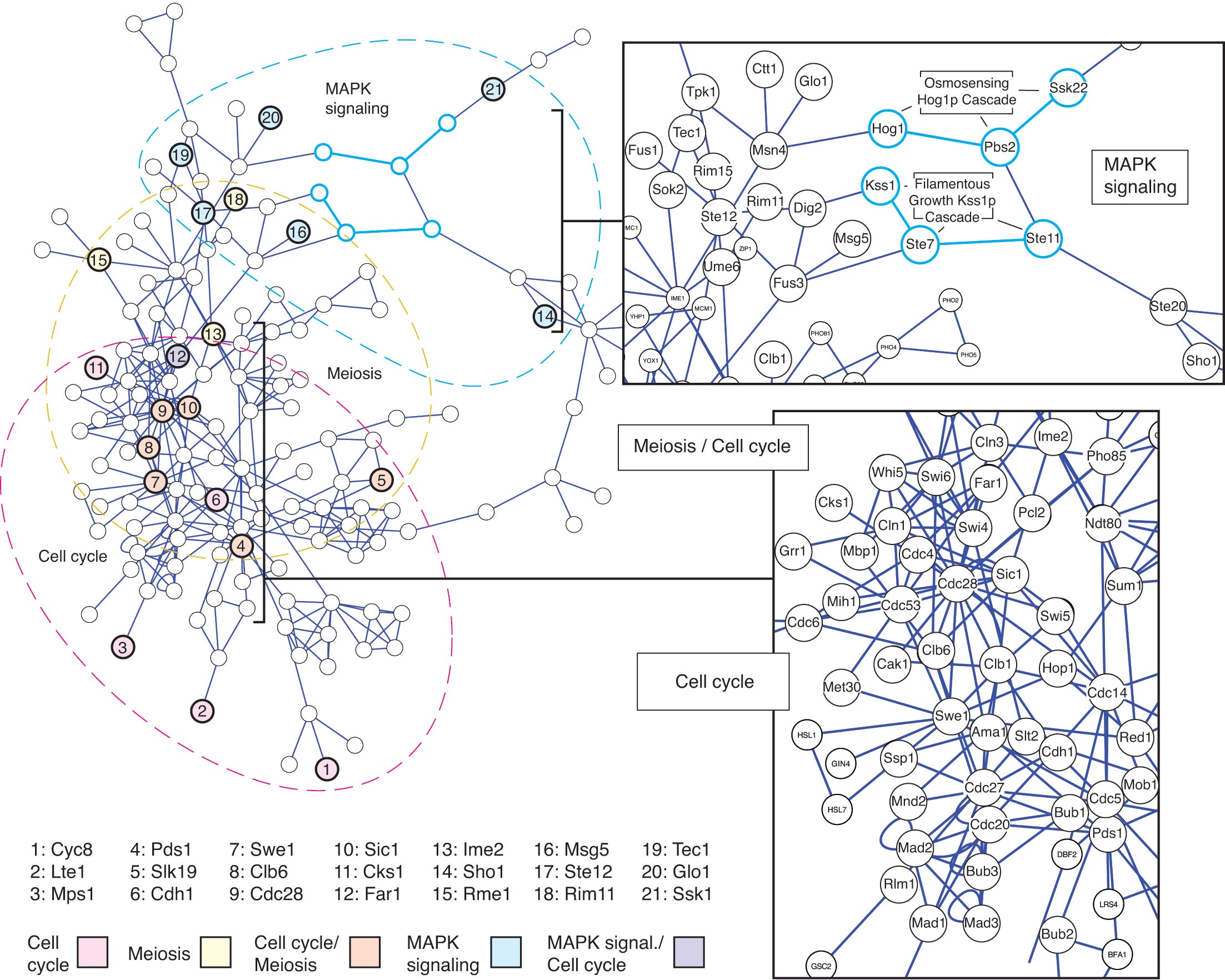In our lab, we utilize functional genomics, proteomics, genetics, cell biology, and biochemistry to probe central signaling pathways underlying eukaryotic cell growth and function. We are currently studying a fundamental process wherein yeast cells undergo a dramatic change from a unicellular to a filamentous growth form. This growth transition is a critical determinant of fungal pathogenicity and also provides an excellent model regulatory network with relevance to ERK/MAPK signaling.
We use a variety of approaches, including genomics and proteomics, to dissect these signaling pathways. We have utilized mass spectrometry-based quantitative phosphoproteomics to identify kinase signaling pathways important for cell growth. We have identified possible regulatory control of translation under conditions of nutritional stress through the modulation of P-bodies and stress granules, two types of protein-RNA complexes important for many cancers and neurodegenerative disorders. Also, we are further studying the mechanism through which conserved signaling pathways required for filamentous growth regulate the abundance of important metabolic messengers, implicated in many developmental diseases. Our studies use both the budding yeast Saccharomyces cerevisiae and the pathogenic fungus Candida albicans.
Check out our Research and Publications pages! Remember, you can’t spell “fungus” without
“F-U-N”!




